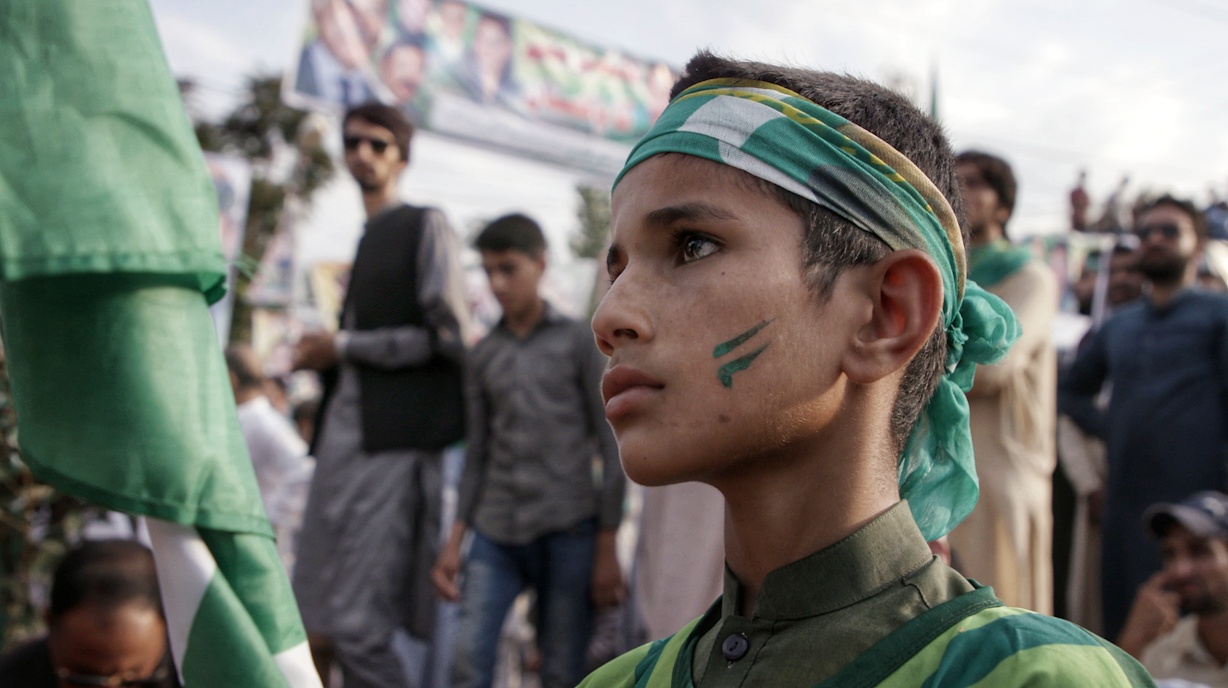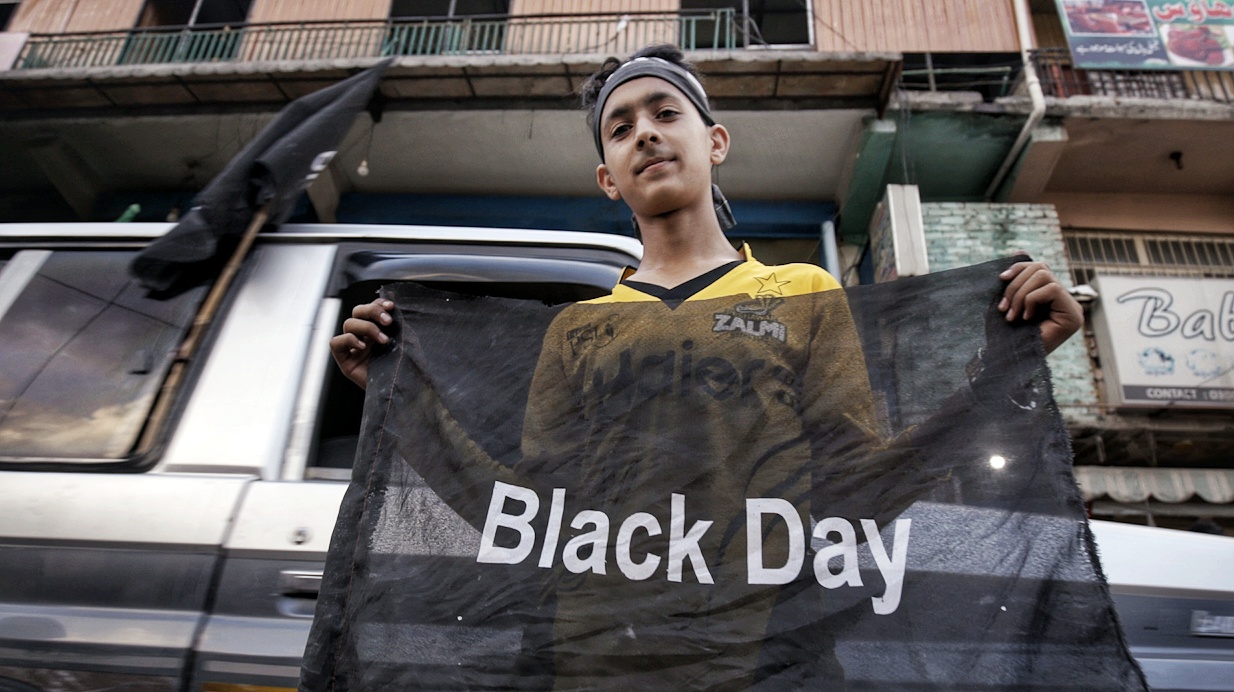Pakistan Rage Over India’s ‘Occupation’ of Kashmir Explodes Into the Streets: ‘I Am Ready to Die’
Credit to Author: Hind Hassan| Date: Thu, 15 Aug 2019 20:38:29 +0000
MUZAFFARABAD, Pakistan-administered Kashmir — India marked its Independence Day Thursday with a chest-thumping celebration of its incendiary move to roll-back the political autonomy of its part of the contested region of Kashmir.
But across the border in arch-rival Pakistan, the mood was anything but festive. The country declared India’s big occasion a symbolic “black day” in protest of Delhi’s decision earlier this month to unilaterally revoke its part of the Muslim-majority region’s relative self-rule.
Protests were held across Pakistan in a demonstration of public rage. Many Pakistanis believe India’s actions have reduced the region to an Indian colony.
Prime minister of Pakistan-administered Kashmir Farooq Haider Khan told VICE News that like many Kashmiris, he believed India’s move was motivated to bring about a demographic shift in the Muslim-majority region.
Becoming emotional as he spoke, he said that if the “occupation” in Indian-administered Kashmir continued, he and others on the Pakistan-administered side would be prepared to take action to help their kin on the other side of the border.
“One has to die one day, why not die to help a brother in Kashmir to get freedom from this Indian occupation?” he said, choking up. “I am ready to die.”

Pakistan’s Prime Minister Imran Khan warned Thursday of “radicalization and cycles of violence” across the Muslim world if the international community ignored the plight of the Kashmiris.
“Will [the] world silently witness another Srebrenica-type massacre & ethnic cleansing of Muslims?” Khan asked on his Twitter account, his profile picture symbolically blacked out.
In Muzaffarabad, the capital of Pakistan-administered Kashmir, about 2,000 people shouted “Modi is a dog!” and “India get out!” as they marched through the streets.
READ: What’s Article 370, and why could its end bring more violence to Kashmir?
“Where is the international community? Where is the U.N.?” Javeed Ahmed, a 50 year-old resident, said to VICE News. “The U.N.’s always asking for human rights — well, where are the human rights for the Kashmiri people?”
Ahmed said India’s unprecedented security lockdown on its side of the divided region meant those inside were completely cut off from the outside world. “All the internet is jammed there — no telephone calls, no Facebook, no way to contact them. We have no idea what’s happening to them,” he said.
“If there’s no solution, we’re willing to go to war.”
“If there’s no solution, we’re willing to go to war.”
The threats conveyed the fury raging in Pakistan over India’s Aug. 5 revocation of Article 370, the constitutional provision that has guaranteed Indian-administered Kashmir political autonomy since it became part of India. The move scrapped Kashmir’s constitution and flag, effectively placing it under direct rule from New Delhi, and removed laws preventing non-Kashmiris from buying land in the region.
In a bid to quiet opposition, India’s Hindu nationalist government imposed an unprecedented security lockdown in the state. It sent in tens of thousands of troops, cut off phone and internet networks, placed Kashmiri political leaders under house arrest, and imposed strict curfews on the public.

India has attempted to justify its move in Kashmir by claiming that bringing the state deeper into the national fold will both tackle separatist militancy in the restive region and bring it greater development and prosperity. But it also satisfies a longstanding desire of Hindu nationalists.
Speaking at New Delhi’s historic Red Fort Thursday at celebrations to mark his country’s Independence Day, Prime Minister Narendra Modi trumpeted his government’s actions in Kashmir, saying his government had achieved what previous administrations had failed to do for seven decades.
“The old arrangements during the last 70 years encouraged secessionism. They gave birth to terrorism and nurtured nepotism,” said Modi. “They made the foundations of corruption and discrimination stronger.”
The Himalayan region has been a source of conflict between India and Pakistan ever since the two countries became independent in 1947. Both claim the territory in full as their own, and administer their own sections, demarcated by what’s called the Line of Control.
The nuclear-armed archrivals have fought wars over the territory, and came close once again in February after a deadly suicide bomb attack on Indian paramilitary forces by the militant group Jaish-e-Mohammed. India accused Pakistan of having a hand in the attack, but Islamabad denied any involvement.
READ: India is threatening Pakistan’s water supply over a suicide attack in Kashmir
While that incident saw the two sides trade airstrikes for the first time in decades, they eventually pulled back from the brink after Pakistan returned a captured Indian air force pilot. Now, though, with India’s sudden change to the status quo in the region, war talk has returned. On Thursday, Pakistan said three of its soldiers were killed in skirmishes along the Line of Control, and that five Indian troops were also killed, although India denied this.
Speaking in Muzaffarabad Wednesday, Pakistan’s Independence Day, Khan claimed his country’s armed forces had intelligence that India was preparing an act of aggression on Pakistani soil.
“The Pakistani army has solid information that they [India] are planning to do something in Pakistani Kashmir, and they are ready and will give a solid response,” Khan said. “The time has arrived to teach you a lesson.”
He repeatedly compared the Hindu nationalist ideology of India’s ruling Bharatiya Janata Party (BJP) to that of Nazi Germany, and raised the specter of ethnic cleansing in Kashmir.
“Narendra Modi says in his speech that ‘We’ll bring prosperity to this place’,” he said. “This is identical to the time when Hitler was attacking Russia, he told them: ‘I’m coming to liberate you from communism’.”
But despite the rage and bravado, analysts say that a full-scale war remains unlikely, as both nuclear-armed powers ultimately realize it is not in their best interests. Pakistan is also pursuing a diplomatic response to the crisis, having expelled India’s High Commissioner, halted bilateral trade with India and called for an urgent meeting of the U.N. Security Council which will be held behind closed-doors Friday.
Vasuki Shastry, associate fellow at Chatham House’s Asia-Pacific program, told VICE News that Pakistan’s pursuit of a diplomatic approach, coupled with its de-escalatory approach during tensions in February, indicated that the threats were ultimately empty, although an acceleration of the proxy war — waged by Pakistan-based militant groups against Indian forces — was likely.
“None of this points in the direction of full-scale conflict,” he said.
This segment originally aired August 14, 2019, on VICE News Tonight on HBO.
This article originally appeared on VICE US.